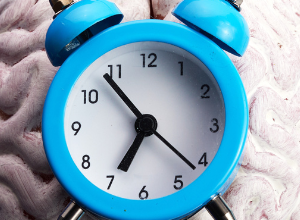- Home
- Forums
- General forums
- Good to know
- Coffee: pros and cons
Coffee: pros and cons
- 511 views
- 2 times supported
- 8 comments
All comments
![]()
cassydee
Good advisor
![]()
cassydee
Last activity on 22/06/2021 at 15:46
Joined in 2017
17 comments posted | 3 in the Good to know group
1 of their responses was helpful to members
Rewards
-
Good Advisor
-
Contributor
-
Messenger
-
Explorer
I love coffee, so does my husband, and we used to drink it every day, until our GP told us to cut down on coffee as it increases blood pressure. I still drink it but not in the quantities I used to
has anyone else got the same advice from your physicians?
![]()
laney365
Good advisor
![]()
laney365
Last activity on 05/01/2026 at 01:31
Joined in 2015
140 comments posted | 18 in the Good to know group
10 of their responses were helpful to members
Rewards
-
Good Advisor
-
Contributor
-
Messenger
-
Committed
-
Explorer
-
Friend
I was told by my consultant heart chappie to drink Decaff as caffeine is a trigger for AF.
See the signature
Laney365

Unregistered member
No mention in this article that I found, about the advice that you are given not to drink it regularly after 6pm, as it can prevent sleep.
In my younger years I used to drink lots of instant coffee and was never that impressed with it, but could not afford any thing more expensive, at the time.
How ever the instant coffee I drank was a better brand, than the cheap one that my parents could afford.
A few years ago my Son treated me to the Tassimo coffee machine and the lovely variety of flavours that are produced, plus the teas and hot chocolates.
Most days I have two of the Tassimo coffees one as a flavoured coffee and a second mid afternoon, with a coffee syrup in it.
I also drink occasional instant coffee, but am now able to afford a better nicer brand these days.
My GP has as yet not told me to reduce my coffee intake but did advice me to drink semi skimmed milk instead of the whole milk, that I was on.

Unregistered member
My MS nurse told me that if I cdnt come off caffeine I shd drink decaf. It was ok, and now I’m used to it. There’s no way I cd give up coffee. My question is simply, does decaf have benefits?

Unregistered member
I like a cup of coffee half coffee with water and half hot milk yumme. Everything in moderation is the thing

robjmckinney
AmbassadorGood advisor
![]()
robjmckinney
Ambassador
Last activity on 04/01/2026 at 17:56
Joined in 2015
640 comments posted | 110 in the Good to know group
64 of their responses were helpful to members
Rewards
-
Good Advisor
-
Contributor
-
Messenger
-
Committed
-
Explorer
-
Evaluator
A mere fad as all foods the so called 'experts' change their mind so often it is becoming meaningless advice. No one will change my coffee habits, so many times experts get it wrong then change their minds. Butter or margarine, even smoking does not cause cancer, salt and blood pressure etc. It is all rubbish in the end like 5 a day vegetables turns out to be a mid-America wholesaler sales campaign rather than medical fact.
See the signature
robjmckinney

Unregistered member
@robjmckinney I strongly agree with you i wouldnt give up my coffee for no one. Its so true if we listened to all the so called experts we wouldnt eat or drink any thing i told my doctor i like a small glass of sherry at night i only have one then he started on about drinking so in future i will keep tight lipped about what i eat or drink

Unregistered member
I'm a bit of a coffee addict and have always been so. I could not ever give up coffee but do have spells where I try and cut back a bit. I often have low blood pressure and my last stay in hospital was told by the nurse to drink coffee as it can raise blood pressure. At other times medical professionals have suggested I cut down on my coffee consumption so just drink it when I want now and take no notice of the scare mongering.
Give your opinion
Articles to discover...
Subscribe
You wish to be notified of new comments
Your subscription has been taken into account








Margarita_k
Good advisor
Margarita_k
Last activity on 07/10/2020 at 11:39
Joined in 2016
1,195 comments posted | 118 in the Good to know group
2 of their responses were helpful to members
Rewards
Good Advisor
Contributor
Messenger
Committed
Explorer
Evaluator
Lots of people all over the world start their day with a nice cup of coffee to boost their energy, and for many coffee is a necessary attribute of their day and one of the greatest pleasures in life.
Recently we've seen numerous articles on the effects of this beverage on our health, both good and bad, and I think I am not the only one who now doesn't really know whether we should or shouldn't drink coffee.
So in this article, we've compiled information on the different impacts coffee has on our organism, and especially on our conditions. It is important to keep in mind that we only talk about good-quality coffee.
We'll begin with the proven health benefits of coffee:
1. Coffee Can Improve Energy Levels and Make You Smarter
Coffee can help people feel less tired and increase energy levels. This is because it contains a stimulant called caffeine, which is actually the most commonly consumed psychoactive substance in the world.
Many controlled trials in humans show that coffee improves various aspects of brain function. This includes memory, mood, vigilance, energy levels, reaction times and general cognitive function.
2. Coffee Can Help You Burn Fat
Did you know that caffeine is found in almost every commercial fat burning supplement? There's a good reason for that: caffeine is one of the very few natural substances that have actually been proven to aid fat burning. Several studies show that caffeine can boost the metabolic rate by 3-11%.
Other studies show that caffeine can specifically increase the burning of fat, by as much as 10% in obese individuals and 29% in lean people.However, it is possible that these effects will diminish in long-term coffee drinkers.
3. The Caffeine Can Drastically Improve Physical Performance
Caffeine stimulates the nervous system, causing it to send signals to the fat cells to break down body fat. But caffeine also increases Epinephrine (Adrenaline) levels in the blood. This is the "fight or flight" hormone, designed to make our bodies ready for intense physical exertion.Caffeine makes the fat cells break down body fat, releasing them into the blood as free fatty acids and making them available as fuel.
Given these effects, it is not surprising to see that caffeine can improve physical performance by 11-12%, on average. Because of this, it makes sense to have a strong cup of coffee about a half an hour before you head to the gym.
4. There Are Essential Nutrients in Coffee
Coffee is more than just black water. Many of the nutrients in the coffee beans do make it into the final drink.
A single cup of coffee contains:
- Riboflavin (Vitamin B2): 11% of the RDA.
- Pantothenic Acid (Vitamin B5): 6% of the RDA.
- Manganese and Potassium: 3% of the RDA.
- Magnesium and Niacin (B3): 2% of the RDA.
Although this may not seem like a big deal, most people are drinking more than one cup per day. If you drink 3-4, then these amounts quickly add up.
5. Coffee May Lower Your Risk of Type II Diabetes
For some reason, coffee drinkers have a significantly reduced risk of developing type 2 diabetes. The studies show that people who drink the most coffee have a 23-50% lower risk of getting this disease, one study showing a reduction as high as 67%.
According to a massive review that looked at data from 18 studies with a total of 457,922 individuals, each daily cup of coffee was associated with a 7% reduced risk of developing type 2 diabetes.
6. Coffee May Protect You From Alzheimer's Disease and Dementia
Alzheimer's disease is the most common neurodegenerative disease and the leading cause of dementia worldwide. Unfortunately, there is no known cure for Alzheimer's.
However, there are several things you can do to prevent the disease from showing up in the first place. This includes the usual suspects like eating healthy and exercising, but drinking coffee may be incredibly effective as well. Several studies show that coffee drinkers have up to a 65% lower risk of getting Alzheimer's disease.
7. Caffeine May Lower The Risk of Parkinson's
Parkinson's disease is the second most common neurodegenerative disease, right after Alzheimer's. Same as with Alzheimer's, there is no known cure, which makes it that much more important to focus on prevention.
In studies, coffee drinkers have a much lower risk of developing Parkinson's disease, with a reduction in risk ranging from 32-60%. In this case, it appears to be the caffeine itself that is causing the effect. People who drink decaf don't have a lower risk of Parkinson's.
8. Coffee Appears to Have Protective Effects on The Liver
The liver is an amazing organ that carries out hundreds of important functions in the body. Several common diseases primarily affect the liver, including hepatitis, fatty liver disease and others. Many of these diseases can lead to a condition called cirrhosis, in which the liver has been largely replaced by scar tissue.
It turns out that coffee may protect against cirrhosis. People who drink 4 or more cups per day have up to an 80% lower risk.
9. Coffee Can Fight Depression and Make You Happier
Depression is a serious mental disorder that causes a significantly reduced quality of life.
In a Harvard study published in 2011, women who drank 4 or more cups per day had a 20% lower risk of becoming depressed. Another study with 208,424 individuals found that those who drank 4 or more cups per day were 53% less likely to commit suicide.
10. Coffee Drinkers Have a Lower Risk of Some Types of Cancer
Coffee appears to be protective against two types of cancer: liver cancer and colorectal cancer.
Studies show that coffee drinkers have up to a 40% lower risk of liver cancer. One study of 489,706 individuals found that those who drank 4-5 cups of coffee per day had a 15% lower risk of colorectal cancer.
11. Coffee Does Not Cause Heart Disease and May Lower The Risk of Stroke
It is often claimed that caffeine can increase blood pressure. This is true, but the effect is small (3-4 mm/Hg) and usually goes away if you drink coffee regularly. However, the effect may persist in some people, so keep that in mind if you have elevated blood pressure.
That being said, the studies do NOT support the myth that coffee raises the risk of heart disease. In fact, there is some evidence that women who drink coffee have a reduced risk of heart disease. Some studies also show that coffee drinkers have a 20% lower risk of stroke.
12. Coffee May Help You Live Longer
Given that coffee drinkers are less likely to get many diseases, it makes sense that coffee could help you live longer. There are actually several observational studies showing that coffee drinkers have a lower risk of death.
In two very large studies, drinking coffee was associated with a 20% lower risk of death in men and a 26% lower risk of death in women, over a period of 18-24 years. This effect appears to be particularly strong in type II diabetics. In one study, diabetics who drank coffee had a 30% lower risk of death during a 20 year study period.
13. Coffee is The Biggest Source of Antioxidants in The Western Diet
For people who eat a standard Western diet, coffee may actually be the healthiest aspect of the diet. That's because coffee contains a massive amount of antioxidants.
In fact, studies show that most people get more antioxidants from coffee than both fruits and vegetables combined. Coffee is one of the healthiest beverages on the planet.
However, even the healthiest nutrients consumed without moderation can become harmful, and too much coffee (about 70 cups) can literally kill you.
Also, despite the fact that coffee can protect us from certain diseases, it is not recommended for people with some conditions, so consult your doctor in case you have doubts.
Here is what you should be aware of if you are a coffee-lover:
1. Coffee and Hydrochloric Acid
Drinking coffee on an empty stomach, such as first thing in the morning, stimulates hydrochloric acid production. This can be a problem because HCl should only be produced to digest meals. If your body has to make HCl more often in response to regular cups of coffee, it may have difficulty producing enough to deal with a large meal.
Protein digestion in particular is affected by a lack of hydrochloric acid in the stomach and protein based foods can pass into the small intestine before being properly broken down. Undigested protein is associated in a variety of health problems, from bloating and gas to IBS, diverticulitis and even colon cancer.
In fact, the knock on effect of not digesting your food properly due to low hydrochloric acid in the stomach could be implicated in dozens of other health issues. Some experts go so far as to say almost all disease begins in the gut. Given this, you can see why it's important to limit anything that interferes with its proper functioning.
2. Ulcers, IBS and Acidity
Many of the compounds in coffee like caffeine and the various acids found in coffee beans can irritate your stomach and the lining of your small intestine. It’s known to be a problem for those suffering from ulcers, gastritis, IBS and Crohn's disease and doctors generally advise patients with these conditions to avoid coffee completely. The question is, could excessive coffee consumption contribute to these health issues in the first place?
Ulcers are believed to be caused by the Helicobacter pylori bacteria. However, the acidic effect coffee has on the stomach may contribute to providing the weakened stomach lining necessary for H. pylori to take hold initially.
Drinking coffee can also irritate the lining of the small intestine, potentially leading to abdominal spasms, cramps and elimination problems, often alternating between constipation and diarrhea. This condition is known as irritable bowel syndrome and more and more people are being diagnosed with it in recent years.
3. Heartburn Problems
Acid reflux and heartburn can be caused by coffee due to the way it relaxes the lower esophageal sphincter. This small muscle should remain tightly closed once you've eaten to prevent the contents of your stomach from coming back into the esophagus and burning its delicate lining with hydrochloric acid.
Caffeine is known to relax the esophageal sphincter so Coke and high caffeine 'energy drinks' can also contribute to heartburn, but coffee is particularly problematic for this. Even decaf regularly causes heartburn problems for some people and researchers think other compounds in coffee can also contribute to acid reflux problems.
4. Coffee as a Laxative
Drinking coffee can stimulate peristalsis, the process in the digestive tract that makes us head for the bathroom. Some people use it deliberately as a laxative, but there’s a problem with this. By stimulating peristalsis, coffee also appears to promote increased gastric emptying, whereby the stomach's contents are quickly passed into the small intestines, often before the digesting food has been properly broken down.
In this partially digested state, it makes it much more difficult for nutrients to be absorbed from your food. It also increases the chances of irritation and inflammation within the gastrointestinal tract. Once again, decaffeinated coffee has also been shown to have laxative and gastric emptying properties so it seems caffeine alone is not to blame.
5. Mineral Absorption, Your Kidneys and Coffee
Heavy coffee drinkers may have difficulty getting enough minerals in their diet, even if they eat mineral rich foods or take supplements. This is due to the way coffee affects iron absorption in your stomach and particularly your kidneys ability to retain calcium, zinc, magnesium and other important minerals.
While all of these minerals are vital for good health, from a digestive standpoint, any interference with magnesium absorption is particularly worrying as it is necessary to maintain bowel regularity and so many of us are already deficient in it.
If you are concerned that you might not be getting enough magnesium then transdermal magnesium oil can be more effective than oral supplements, which usually have poor absorption rates.
6. Acrylamide in Coffee
Acrylamide is a potentially carcinogenic substance that forms when coffee beans are roasted at high temperatures. The darker the roast, the higher the levels of acrylamide are likely to be. In fact, coffee has been shown to be one of the major sources of this dangerous chemical.
7. Coffee, Stress and Tension
Drinking lots of coffee will promote the release of the stress hormones cortisol, epinephrine and norepinephrine. These chemicals increase your body’s heart rate, blood pressure and tension levels – the old ‘fight or flight’ response. We often say we need to drink coffee to give us energy. But for many of us, has it gone further than just energy and turned into a kind of jittery tension that is always on and makes it difficult to relax? Maybe it pushes you to get through the paperwork, but longer-term the health implications of this kind of ongoing stress are significant.
Turning on the stress hormones with a cup of coffee when you're eating also interferes with the digestive process. When you're in ‘fight or flight’ mode, your body will divert its resources to being ready for a potential threat and digestion suffers as a result. Finally, the caffeine in coffee is known to interfere with GABA metabolism. Gamma-aminobutyric acid is a neurotransmitter involved in regulating mood and stress levels. It should also have a calming effect on the gastrointestinal tract. Your mood and your digestive system are surprisingly interrelated. Unfortunately, when you drink a lot of coffee the high levels of caffeine in it can negatively affect both of them.
To conclude, if you are suffering with conditions affecting your digestive system, it is recommended to limit your consumption of coffee, and talk to your doctor about it.
Finally, for those cannot live without coffee, here are some tips to make it healthier:
- Avoid adding any refined sugar or harmful artificial sweeteners: instead, use cane or coconut sugar, or maple syrup. If you prefere your coffee black, unsweetend it is the halthiest way. Alos, avoir buying flavoured coffee in coffee-shops as they are loaded with sugar.
- Avoid artificial creamers (liquid or powder), which are usually made with corn syrup solids and hydrogenated oils (harmful trans fats). Instead, use a little bit of real full-fat cream, or coconut cream.
- If you want to load your coffee up with more healthy antioxidants and good taste, consider trying some added cinnamon to your coffee (cinnamon can help control blood sugar and has many other health benefits), or organic cocoa powder (non-sweetened).
- If you can, try to choose organic coffee beans, as conventional coffee is one of the most heavily treated crops with pesticides, fungicides, and herbicides.
________________
Sources: healthline.com; healthambition.com; truthaboutabs.com